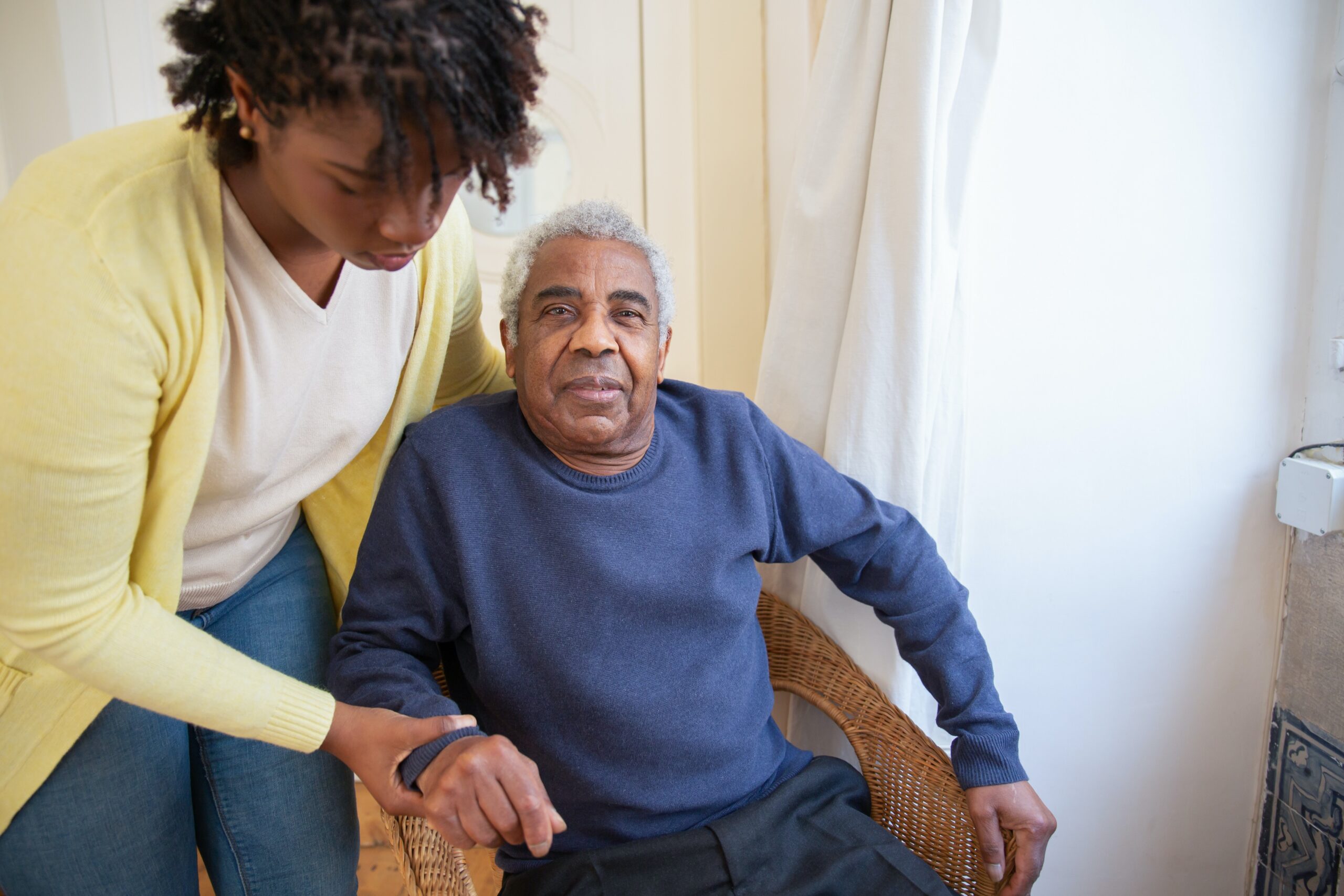Chronic Pain: Supporting a Loved One

Different from acute pain that occurs quickly after an injury or illness and improves with treatment, chronic pain persists for three months or longer. Chronic pain can exist with an ongoing health condition like arthritis or cancer, or with less ‘visible’ illnesses including endometriosis, Crohn’s disease or fibromyalgia which causes widespread pain in bones and muscles. Others can experience persistent pain when a malfunctioning nervous system continues to send pain signals even after recovery from an injury or disease. And sometimes, there is no known cause and people suffer chronic pain without a past injury or illness.
Regardless of the source, experiencing pain day after day can impact every part of a person’s life and lead to serious health problems. Persistent pain can make it hard to function at home, work and in social situations and can cause sleep disturbances, decreased appetite, depression and anxiety. Because pain is a subjective experience, it can be difficult to know how to support a loved one living with chronic pain. If someone you care about is suffering, here are some tips that may help.
How to Support Someone with Chronic Pain
Do Your Research
Chronic pain is unique and individual, and as some people do not show visible symptoms, it’s helpful to learn as much as you can about your loved one’s specific condition. To be as informed as possible, read articles from the chronic pain patient’s perspective, go to medical appointments ready to ask questions and be there just to listen on the difficult days. Don’t measure your loved one’s abilities by what they were able to do yesterday or last month as chronic pain is inconsistent – they can be in the garden one week and bedridden the next. When you better understand their individual pain and illness you will also find yourself less frustrated by changes in routines, shifting roles or cancelled plans.
Be Specific
Watching someone you care about live with pain can make you feel powerless. Acts of service are a way to put your empathy into action, but many people struggle to accept help. Instead of a vague, ‘Let me know what I can do,’ try, ‘What can I grab for you at the grocery store when I’m there this afternoon,’ ‘I’m taking my kids to the park, can I borrow yours to keep everyone entertained’, or ‘I’m really wanting some dog time, so I was hoping to bring Daisy on my walk this morning.’ Even if the person you care about doesn’t say yes every time, you are letting them know that you are aware of their pain, how it affects their daily life and that you want to help.
Check-in
Chronic pain often fluctuates so it can be helpful to regularly ask your loved one to rate their pain using the pain scale (0 = no pain and 10 = the worst pain). Many chronic pain patients learn to hide or downplay their pain, so watch for other signs that they are suffering including pained expressions, laboured breathing or atypical body movements. It can also be helpful to ask specific questions like, ‘I know you are hurting, would you prefer to have company or be alone today?’ or ‘Would a walk to the mailbox make you feel better or worse?’ Understanding where your loved one is at pain-wise can help you know what to expect and to not take things personally if it’s a particularly painful day. If you’re on the receiving end of anger, irritability and frustration, talk about how this makes you feel and draw boundaries when needed.
Keep Asking
People living with chronic pain and other long-term conditions tend to withdraw socially and friends and family often stop asking them to do things because they always say no. Even if the person in your life has declined the last four events, keep inviting them. If they have to cut an outing short, cancel last minute or make a change to original plans, remember that it isn’t about you and more likely a reflection of how they are feeling.
Chronic pain and depression are also closely linked, so watch for symptoms like persistent sadness, hopelessness, lack of interest in activities previously enjoyed, sleep difficulties and decreased appetite. Acknowledge concerning behaviour and suggest that they talk to a doctor at their next appointment. If your loved one is showing warning signs of suicide and you are worried that their life may be at risk, call 911, take them to your nearest emergency department, or call the crisis line Talk Suicide Canada at 1-833-456-4566 for 24/7 support.
Take Care of Yourself
As a caregiver or friend of someone living with pain, you are likely experiencing many of your own emotions. You may feel guilty that you can’t fix the problem, frustrated by people who don’t understand chronic pain and resentful of how your own relationship and life has been impacted. Acknowledge all of these feelings and realize that you will be in a better position to help your loved one if you are also taking care of yourself. Eat regular and nourishing meals, get enough sleep and physical activity, keep up with your own medical appointments and ask other family and friends for help.
Support groups can also be very beneficial to connect primary caregivers with other people in similar situations. The Chronic Pain Association of Canada provides many resources for people affected by pain and facilitates a nationwide support group network. As well, Take Control Take Charge, funded by the Ontario Ministry of Health and Long-Term Care, offers free online workshops for people living with chronic pain or a chronic disease and their caregivers.
If you enjoyed this article, you may also like to read:
